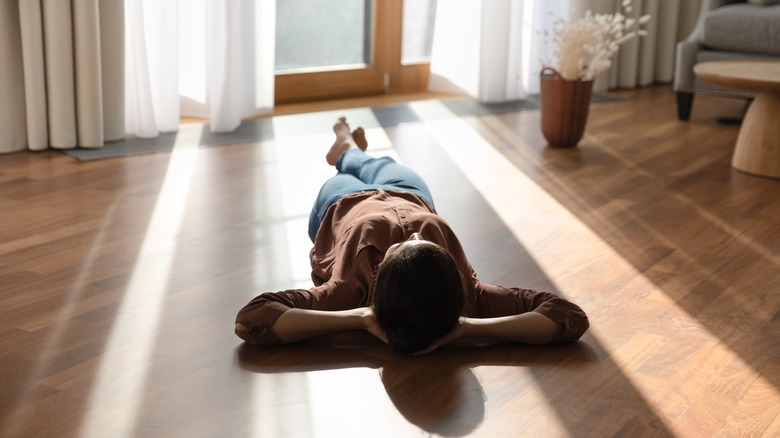Sleep is an extremely important part of a healthy lifestyle, arguably the most important because it affects so many aspects of your health. How much sleep you need is determined by your age, and getting enough provides too many benefits to count, including a strengthened immune system, a lowered risk of heart disease, reduced stress, better decision-making abilities, and so much more, according to the U.S. Department of Health and Human Services.
The benefits of sleep are well known, but what about naps? Naps are short bouts of sleep, usually taking much less time than a full sleep session, and can provide similar benefits, including reduced fatigue and improved performance, according to MayoClinic. Some people who nap every day swear by them. Of course, there are drawbacks, specifically that napping for too long in the day can affect how you sleep at night. But can shorter naps be the key to napping success? The Navy SEAL power nap suggests it is.
The Navy SEAL Power Nap may leave you feeling rested

The Navy SEAL Power Nap, popularized by former Navy SEAL Jocko Willink, is a mere 8 minutes long, according to Everyday Health. But is that really enough time to feel refreshed? The Mayo Clinic suggests naps should be kept short, ideally between 10 and 20 minutes. This is due to sleep inertia, which can cause you to feel groggy upon waking from naps that are too long. Sleep consists of four stages cycled through four to six times, according to Cleveland Clinic. The longer you sleep, the deeper into these stages you will go, and the harder it will be to wake up. So in this sense, the SEALs may be onto something.
The Navy SEAL Power Nap also involves elevating your legs so they are above your heart (per Everyday Health). However, sleep experts are skeptical and unconvinced this will be a comfortable napping position for everyone. For Navy SEALs or other people who exercise regularly, elevating your legs can improve circulation, according to Train Right, but it’s not proven to be necessary to reap the benefits of a nap.
Perhaps a more important consideration is when you take a nap. As it turns out, early afternoon naps may actually help you get better sleep at night. It’s also important to keep in mind that napping during the day is not a replacement for a good night’s sleep. Most adults need 7 to 9 hours of sleep every night, according to the National Sleep Foundation.